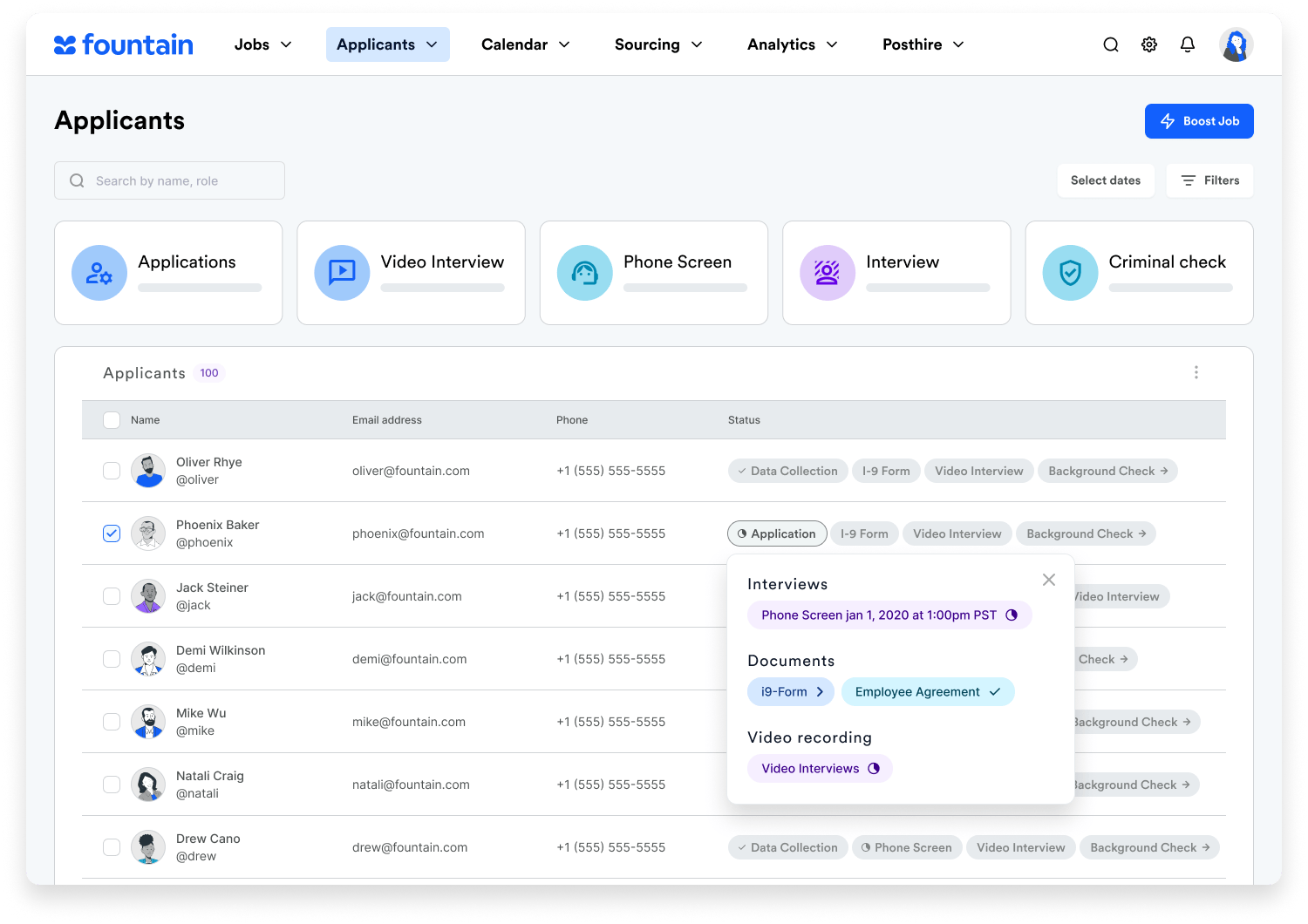Common challenges of in-person interviews include transportation costs, last-minute scheduling changes, no-shows, and a variety of other issues. While virtual hiring doesn’t completely eliminate these, it has mitigated them significantly.
Transportation costs are basically non-existent, scheduling changes aren’t as drastic because interviews are primarily video as opposed to in-person interviews, and no-show rates have dropped dramatically with a focus on video interviewing.
The adaption of remote hiring strategies has, however, created a new set of obstacles. Hiring teams now have to adjust to the challenges found in primarily virtual recruiting, which weren’t as prevalent before.
Connectivity issues
These are issues that before may have been one-off situations that didn’t seem significant in the grand scheme of things. With primarily in-person interviews, this wasn’t much of a concern.
These issues can really begin to hamper productivity and your ability to adequately assess candidates, especially if you’re conducting a high volume of interviews. If your connection is constantly cutting out, or if you’re unable to hear certain answers, it could negatively affect your perception of a candidate.
Solution
Be flexible with candidates’ needs and capabilities. Not every applicant has great internet, the ability to access a computer for video interviews, or a variety of other needs for virtual interviewing.
If a candidate prefers a phone call, have a phone call. Especially for interviews early on in the interview process. If an in-person or video interview is absolutely necessary to the position, it can be revisited at a later time.
Difficulty communicating company culture
It used to be much easier to explain what the office culture was like when employees were working together in person. Now, the factors that distinguish your company from the next are somewhat ambiguous.
Let’s say you’re having a remote interview, haven’t been in the workplace for almost a year now, and a candidate asks you what the company culture is like during a remote interview. What would you say? The answer probably isn’t readily available.
Solution
Re-evaluate what company culture means to you in a remote environment, and over-communicate with employees and prospects. Ensure your team understands how your organization is trying to distinguish itself, and so you fully understand it too.
We’re all adapting to the changes being made to the workforce. With this in mind, the technology you deploy directly affects your organization’s productivity and satisfaction levels. Assess if there are new tools available that can transform your company’s culture.
Misalignment among interviewers
Getting the team prepared and scheduled for interviews is a lot easier when you’re working in person on a daily basis. If you’re a retail hiring manager, office manager, or in any position where you’re doing high volume hiring, there’s a good chance you’ve had to make adjustments to your interview process.
Last-minute scheduling changes, unclear interview schedules, and other forms of miscommunication are all more difficult to adjust to when you are communicating remotely.
Solution
Communicate, communicate, and over-communicate. This is a crucial reminder for high volume hiring remotely. Store managers, recruiters, and hiring managers are working at such a quick pace that miscommunication is bound to happen.
Utilize the tools in your tech stack, especially your applicant tracking system, for communicating with candidates. The more tools at your fingertips, the better. Integrations that help you automate workflows, communicate with candidates, and automate scheduling are going to be especially helpful.
Proper evaluation
Earlier, we touched on how a poor internet connection could negatively affect your perception of a candidate undeservingly. This issue can be be more problematic than just a poor internet connection.
When we’re doing primarily remote interviews, we’re unable to asses candidates to their full potential. So much these interactions consists of non-verbal and social cues that, especially for retail employees, it’s crucial that you know whether or not their going to have strong face-to-face communication skills.
Solution
Identify the best evaluation methods for each unique role, and be flexible. Vetting candidates for different roles isn’t a one size fits all method. If you’re hiring a customer facing retail employee, your method of assessment is going to be different than if you were hiring a call center representative.
A retail employe will require at least one face to face interaction, but these can be replicated with video interviews if in person isn’t available in the working climate. Call center representatives shouldn’t necessarily require any kind of face-to-face interview, so be flexible with candidates that are unable to make that happen.

 Feb 22 2021
Feb 22 2021
